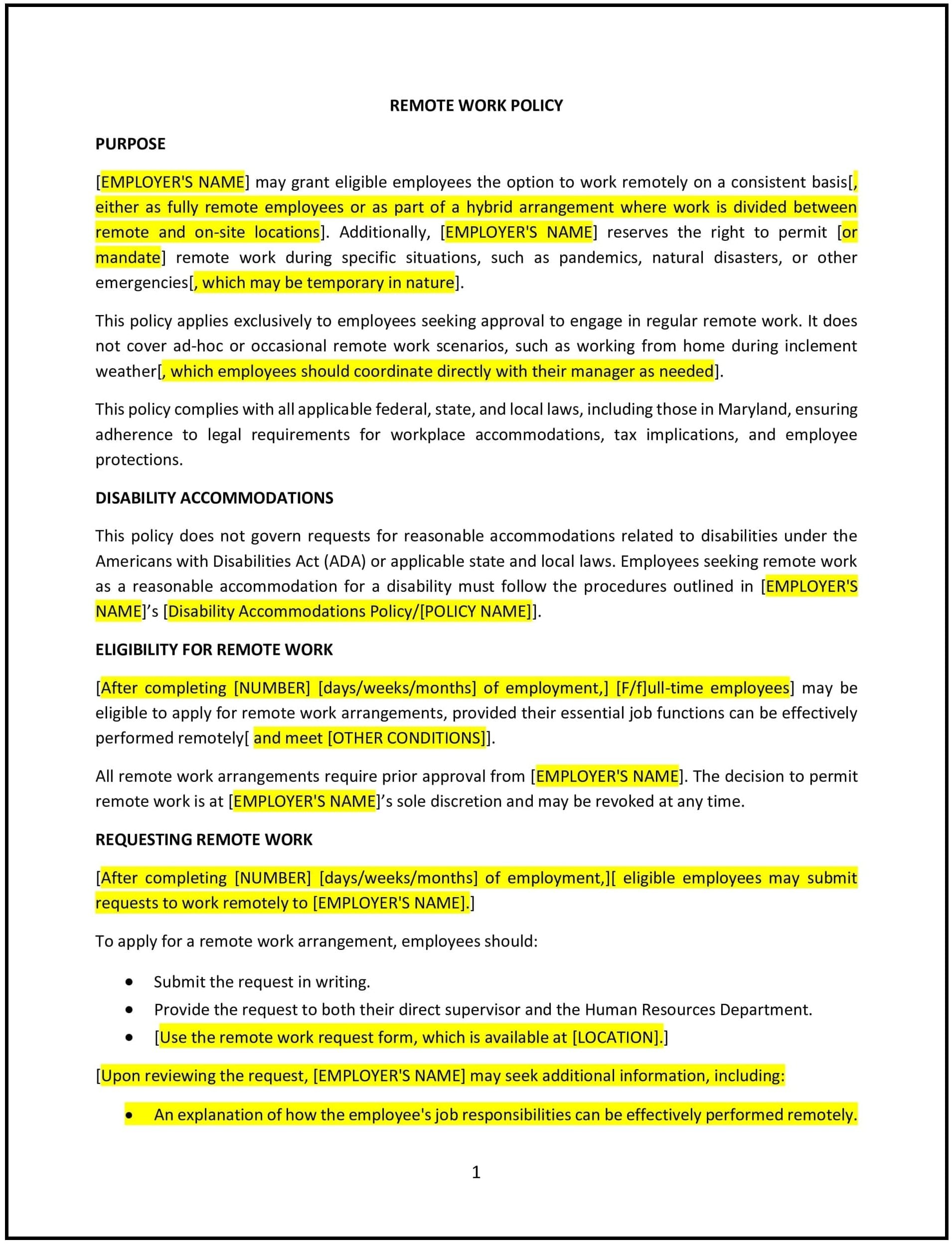Got contracts to review? While you're here for policies, let Cobrief make contract review effortless—start your free review now.

Customize this template for free
Remote work policy (Maryland)
This remote work policy is designed to help Maryland businesses establish clear guidelines for employees who work remotely or telecommute. It defines expectations around work hours, communication, productivity, and technology usage to maintain effective operations while offering flexibility.
By adopting this policy, Maryland businesses can create a structured approach to remote work that balances employee needs with business goals.
How to use this remote work policy (Maryland)
- Define remote work expectations: Clearly state which positions or roles are eligible for remote work and the specific conditions under which remote work is permitted.
- Set work hours: Establish core work hours or flexible schedules, depending on the needs of the business and employees.
- Outline communication requirements: Specify how employees should communicate with their team and managers, including expectations for meetings, responsiveness, and tools to be used (e.g., email, instant messaging, video calls).
- Address productivity measures: Define how performance will be monitored and the metrics for evaluating productivity, such as task completion or work outcomes.
- Provide technology guidelines: Detail the equipment, software, and security protocols that employees are expected to use while working remotely.
- Include confidentiality and security provisions: Emphasize the importance of safeguarding company information and data when working outside the office.
- Reflect Maryland-specific considerations: Incorporate any state-specific labor laws or business practices that apply to remote work, such as wage and hour laws for remote employees.
Benefits of using this remote work policy (Maryland)
Implementing this policy provides Maryland businesses with several advantages:
- Promotes flexibility: Allows employees to balance personal and professional commitments while maintaining productivity.
- Increases employee satisfaction: Demonstrates trust and flexibility, which can improve morale and retention.
- Reduces overhead costs: Reduces the need for office space, utilities, and other physical infrastructure.
- Enhances productivity: Remote work can increase focus and reduce distractions for some employees, leading to higher efficiency.
- Aligns with Maryland trends: Reflects the growing demand for remote work options in the workforce, especially in a post-pandemic environment.
Tips for using this remote work policy (Maryland)
- Communicate clearly: Ensure employees understand expectations around availability, productivity, and communication.
- Use collaborative tools: Leverage tools like project management software, video conferencing, and chat platforms to facilitate remote collaboration.
- Foster inclusion: Regularly check in with remote employees to ensure they feel included and engaged with the team.
- Provide resources: Offer training on using remote tools, cybersecurity practices, and managing remote work effectively.
- Review regularly: Assess the policy periodically to make sure it aligns with evolving business needs and employee feedback.